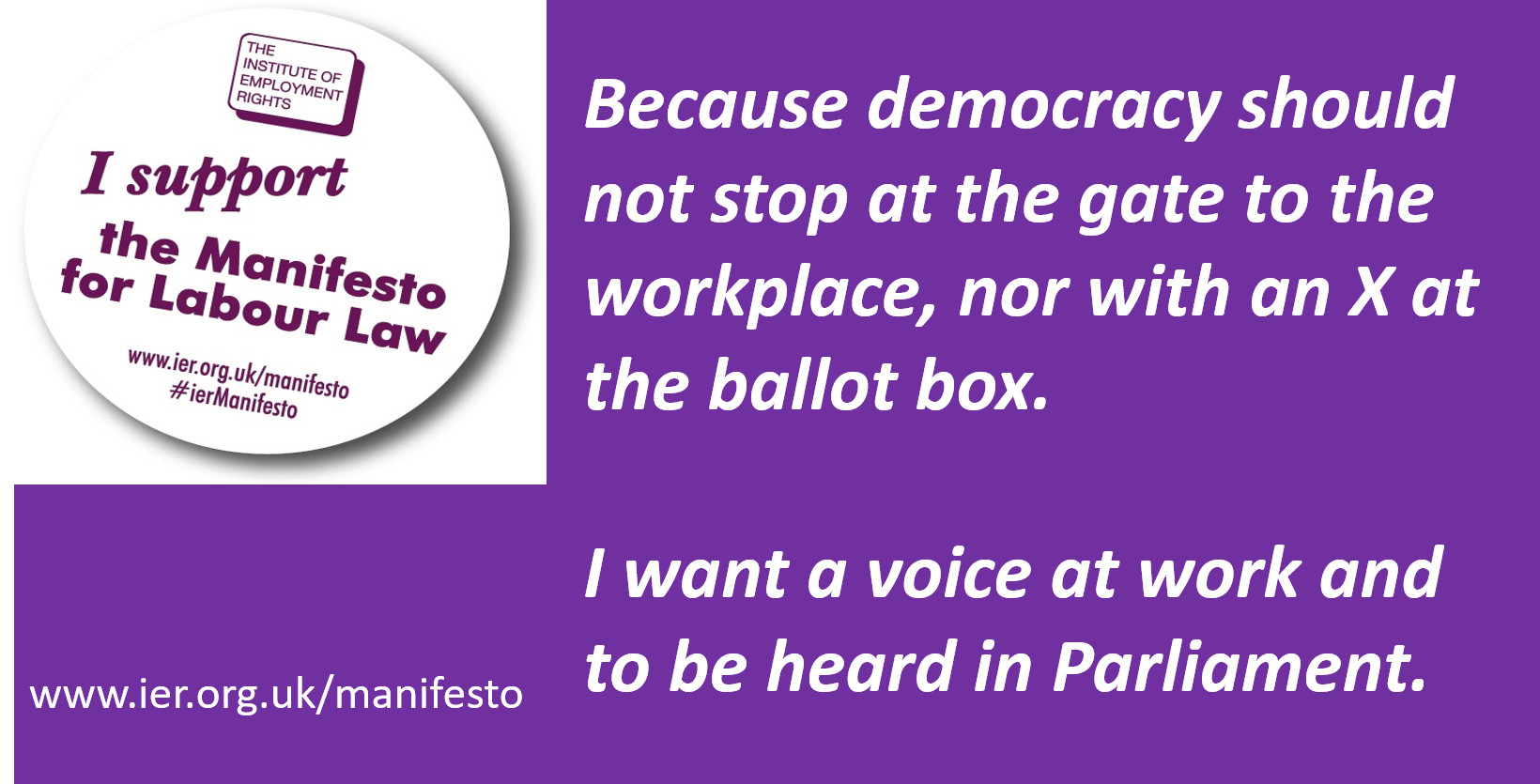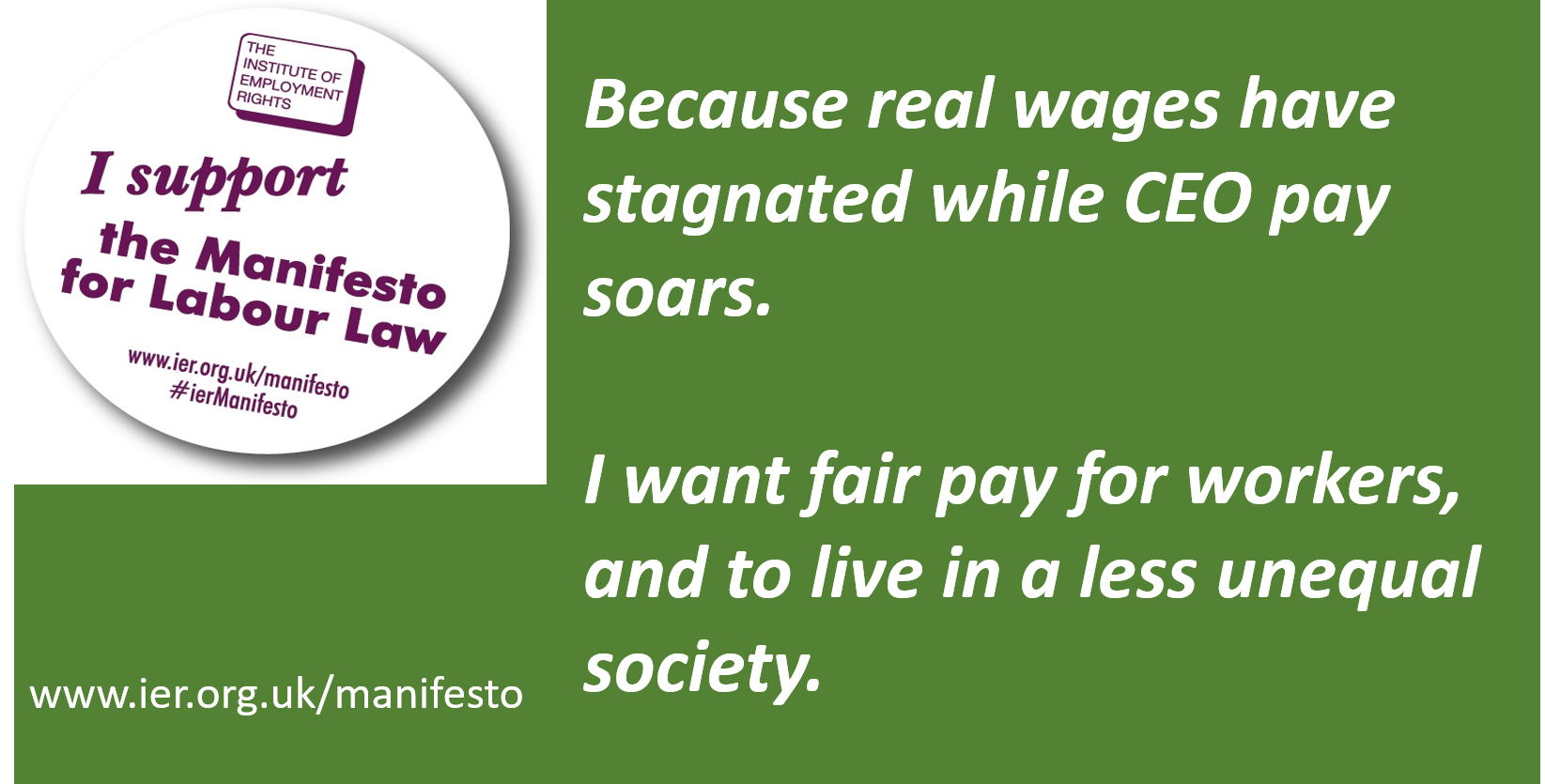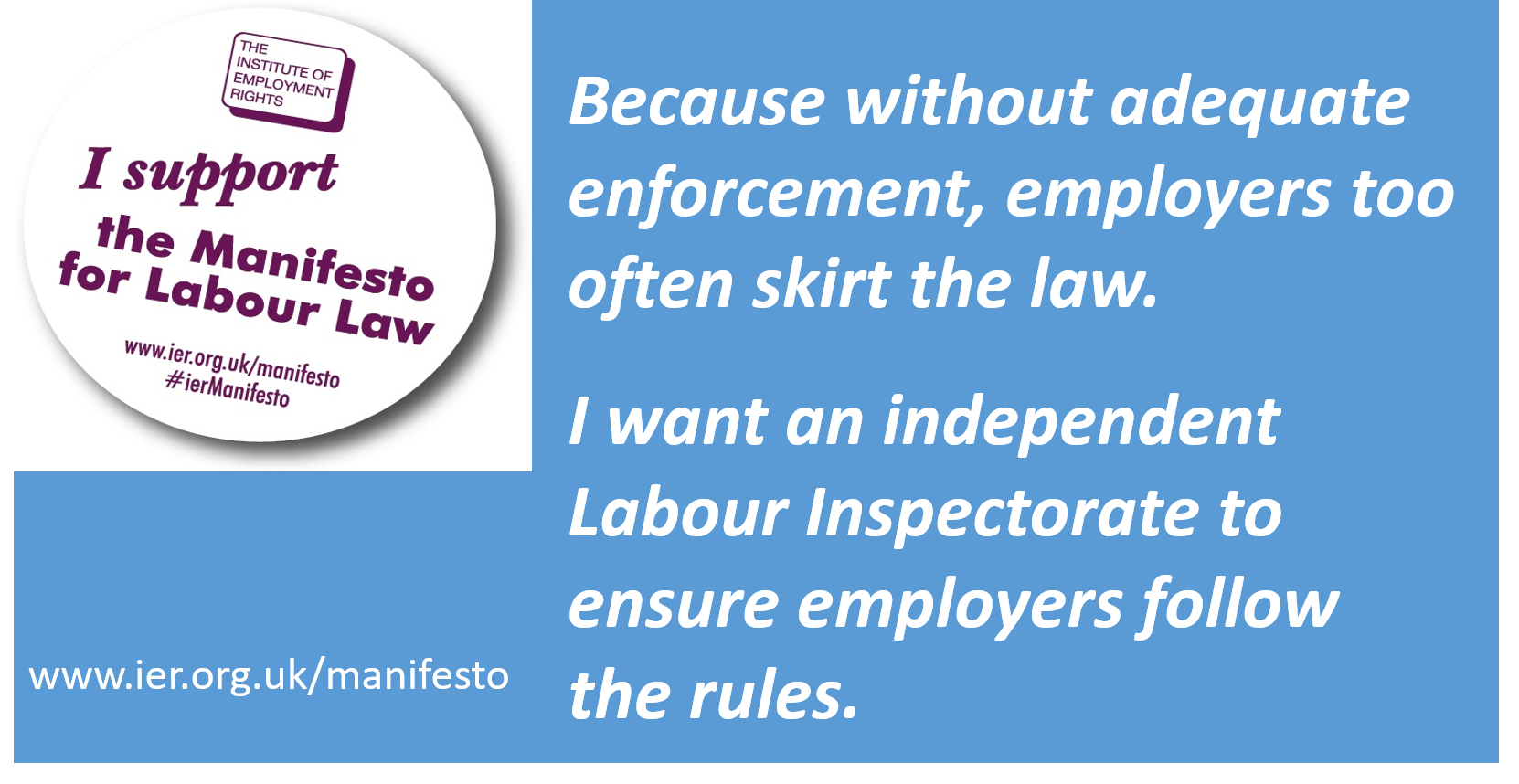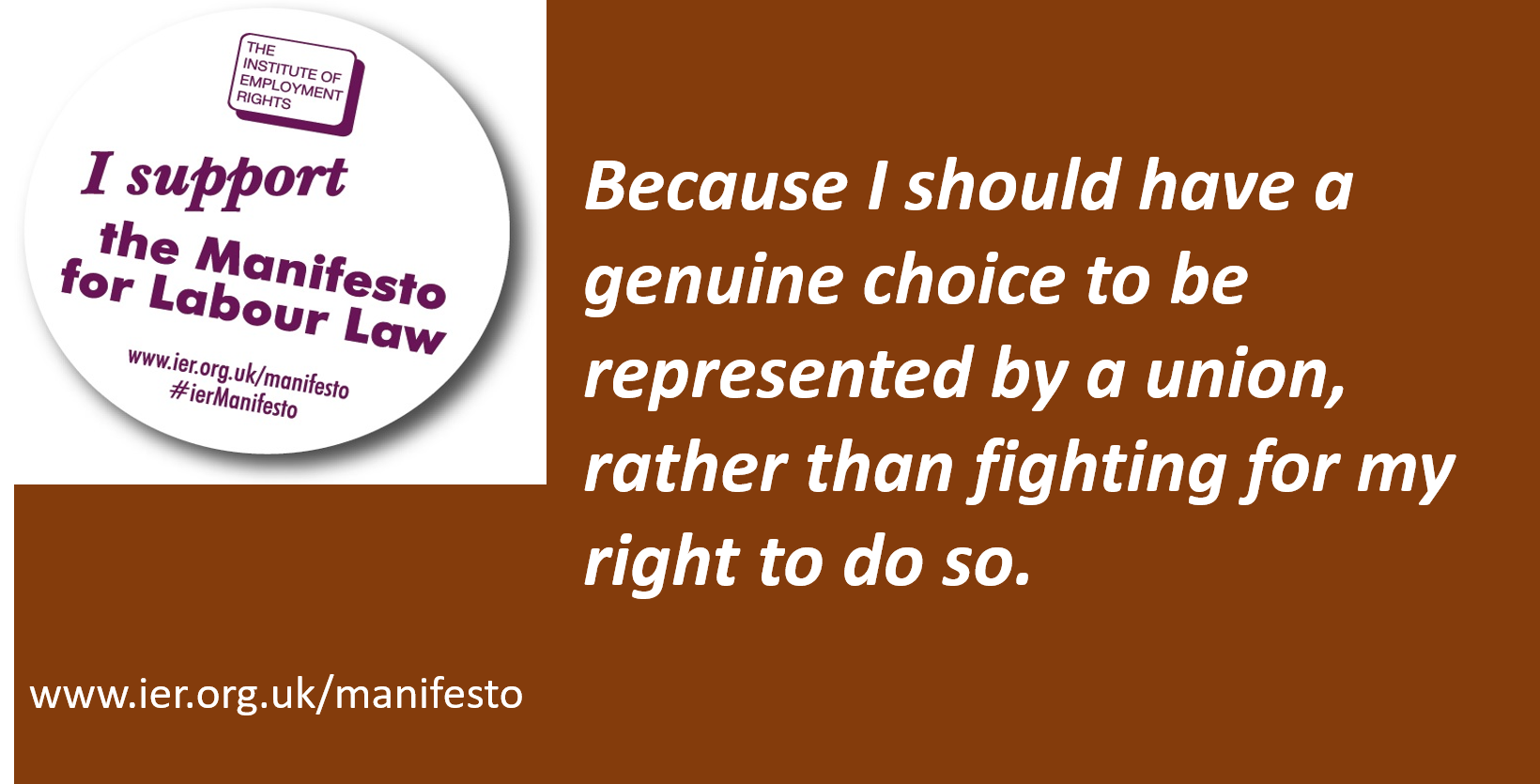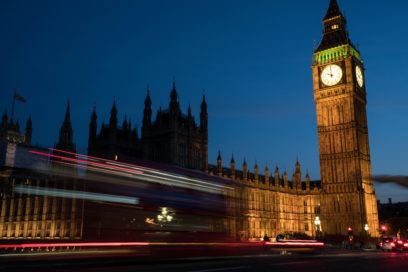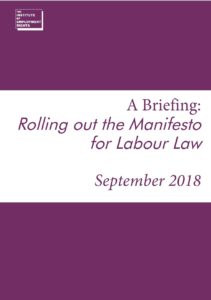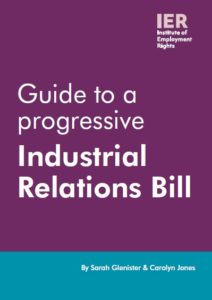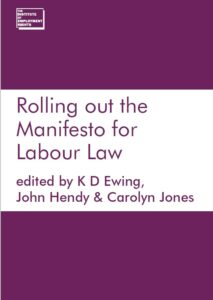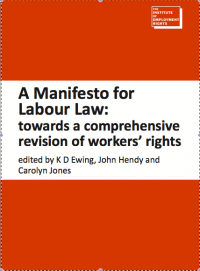
Manifesto for Labour Law
Delivering a Ministry of Labour, sectoral collective bargaining and equal rights for all workers.
The Manifesto for Labour Law's 25 recommendations for reform have found widespread support across opposition parties and trade unions and have significantly influenced Labour Party policy.
A ‘blueprint’ for the Labour Party’s future reforms to employment and trade union rights
Launched in 2016 in response to a call for evidence as part of the Labour Party’s Workplace 2020 consultation, this project has so far produced three publications and attracted 26 leading academics and lawyers from some of the UK’s most prestigious institutions to the Manifesto for Labour Law team.
The recommendations developed over the course of the project have the overarching aim of shifting the focus of labour law towards collective, rather than individual, workers’ rights.
Key proposals include:
- Establishing a Ministry of Labour
- Restoral sectoral collective bargaining
- Strengthening trade union rights – including the right to strike
- Strengthening statutory rights
- Ensuring all people in employment are granted the full suite of rights from day one on the job
- Establishing a robust enforcement system
Most economies across the developed world already operate a similar system of collective working rights to that put forth by the Manifesto team, particularly in Europe where the majority of people in employment receive wages and conditions agreed on their behalf by trade unions.
Drawing from international and historical evidence, the Manifesto for Labour Law recommendations could transform the world of work for millions of people, reduce inequality, and build a strong, resilient, future-proofed economy.
25 recommendations for reform
-
A Ministry of Labour (MoL)
A Ministry of Labour (MoL) with a seat at the Cabinet table will be established to give workers a voice in Parliament, acknowledging the fact that more than half the population are workers.
-
A wide remit for the MoL
The MoL will be responsible for overseeing a new collective bargaining framework; ensuring full employment in secure, high-quality jobs; ensuring wages remain high enough to minimise reliance on state benefits; and developing strategies to provide appropriate training and education to fill present or future skills gaps.
-
A National Economic Forum
Unions, employers, government officials and independent academics will sit on the National Economic Forum – established by the MoL – to plan for industrial challenges and scrutinise the impact of policy on all sections of society.
-
Bargaining Councils (BCs)
Bargaining Councils (BCs) will be established and rolled out across all sectors of the economy, probably beginning with the worst paid such as the adult social care sector. An equal number of employers’ and workers’ representatives will sit on BCs to negotiate sectoral collective agreements on everything from wages, to apprenticeships, to dispute resolution procedures. BCs will also represent the interests of their industry to government.
-
Stronger trade union rights
Stronger trade union rights to recognition, access and inspection of workplaces will be introduced to provide workers with a voice at work and a genuine choice as to whether they are represented by a union rather than forcing them to fight for the privilege. A right to strike will be stated, some forms of secondary action permitted – and anti-trade union actions taken by employers will be made unlawful. Individual trade union representatives will be protected against unfair dismissal and surveillance.
-
The repeal of the Trade Union Act 2016
The repeal of the Trade Union Act 2016 will ensure workers can negotiate on a level playing field with employers.
-
Enterprise bargaining
Enterprise bargaining will build on sectoral collective agreements, falling below these only by agreement of the BC.
-
Workers on boards
A minimum of two workers on boards, as well as votes at company general meetings, better representation of workers as pension fund trustees, and greater worker control over pension funds.
-
A real Living Wage
That is, a wage that covers the cost of living, as calculated by the Living Wage Foundation, to replace the National Minimum Wage and the National Living Wage.
-
Equal rights from day one for all workers
A new universal status of ‘worker’ will replace the current division that makes workers who are not ‘employees’ eligible for fewer rights than ‘employees’. This will remove the confusion over employment status in the gig economy. The onus will be on employers to prove a contractor is self-employed, rather than workers having to prove they are not self-employed.
For more on this, see the Workers (Definition and Rights) Bill our experts drafted on behalf of the Scottish Nationalist Party.
-
A ban on zero-hours contracts
These should be replaced by contracts with a minimum number of guaranteed hours and a premium rate for overtime. Employers should be able to indicate a limited number of hours in addition to regular hours, allowing them to retain flexibility of the workforce, thereby replacing zero-hours contracts with a fairer alternative.
-
Stronger protections against discrimination and harassment
Stronger protections against discrimination and harassment will include a new duty to provide harassment-free workplaces and the inclusion of socio-economic status in protected characteristics.
-
Stronger rights for families
One month paternity leave on full pay and two-three months leave to be shared by the parents flexibly, which can be shared when the child is slightly older.
Flexible working will also become a day one right, allowing parents to better arrange balancing work and family life.
Pregnant women and new mothers will receive stronger protections against unfair dismissal.
-
In-house dispute resolution procedures
To avoid unnecessary, expensive and stressful court cases, in-house dispute resolution procedures agreed by BCs will be the first port of call when resolving a grievance, thus establishing the principle, negotiation not litigation.
-
An Independent Labour Inspectorate
An independent Labour Inspectorate will be established with the power to enter workplaces, issue enforcement notices and reinstate unfairly dismissed workers.
Where the dispute cannot be resolved, the Inspectorate will have the power to bring legal proceedings against bad employers and criminal prosecutions against the worst offenders.
-
An improved Labour Court system
The first tier of the new system will consist of the Central Arbitration Committee and Employment Tribunals, which will be given greater powers to investigate and resolve disputes.
Claims can then be appealed to the Labour Court, and the Labour Court of Appeal.
-
Tougher penalties for those who break the law
Compensation will better reflect the losses suffered by the victim and penalties set at an appropriate level to deter breaches of the law.
-
Serious consequences for ignoring court orders
Failure to pay compensation will be treated as an aggravated breach, attracting criminal sanctions for the worst offenders.
-
Criminal sanctions for the most serious offences
Serious breaches of labour law, such as blacklisting, will be tried under criminal law.
Further, a new unit of the Crown Prosecution Services will investigate cases of corporate manslaughter.
-
Personal liability for decision makers
Directors and shareholders will be held personally accountable where their actions have caused or contributed to harm.
-
Accountability for the supply chain
Supply chain leaders will face joint liability for labour law breaches made by their suppliers, including health and safety regulations and minimum labour standards applied either in law or agreed by BCs in any jurisdiction including domestically and abroad. This will ensure that UK profit cannot be based on exploitation, including of those in other nations.
-
New powers for health and safety officers
Health and safety officers will have the right to stop the job when danger is imminent and serve provisional improvement notices for lower-risk breaches.
-
More health and safety inspections
Some of the highest fatality rates occur in industries designated as ‘low-risk’ by the government (and therefore currently exempt from inspection).
Health and safety inspections will no longer be focused on those industries arbitrarily designated as ‘high risk’. Proactive inspections will return in all industries.
-
Promotion of fair work by the government
New public procurement and licensing rules will limit public works to contractors that recognise and negotiate with trade unions, and that do not engage in blacklisting or other serious labour law breaches.
